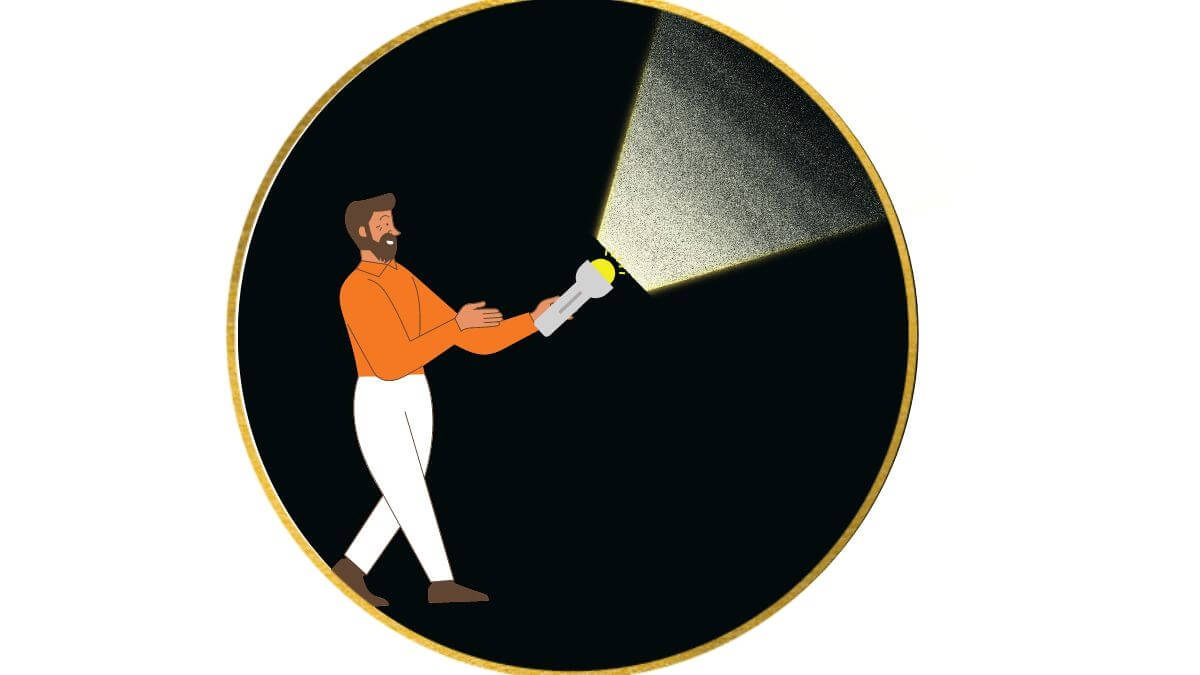Have you ever stopped to think about the importance of the sun in our lives? Light has always been seen in our culture as the opposite of darkness, considered positive compared to the negativity of darkness. Have you wondered why?
With the arrival of spring, the winter cold retreats to make way for warmth, the blooming of flowers and crops, and more hours of sunlight. The clouds covering the sky disperse, leaving a great sun that illuminates our sky. That’s why many cultures considered the sun as the birth of life.
Christmas, in fact, coincides with pagan festivities dedicated to the winter solstice, celebrating the rebirth of the sun. Until December 21/23, the days have become progressively shorter, the sun has lost strength to darkness. From December 24, the day gradually lengthens, gaining ground over the night. Christmas represents for other cultures the triumph of light over darkness.
Do you understand now why light and the sun are so valuable to humans? Yes, right? This opposition between light and darkness has become so ingrained that it has been incorporated into language. In everyday life, we use expressions where light and clarity come into play to combat darkness (as in the winter solstice).
These expressions manifest in language through metaphor. We have been taught that metaphor is a literary device that embellishes discourse, but in fact, metaphors are an integral part of our understanding of the world and how we talk about it.
When describing something to someone, an image comes to mind. What if, instead of describing, we directly share the image we visualize? If we say the expression “Love is a journey,” we evoke in the listener’s mind the different stages of love, the years shared with the loved one, and the various events that happen throughout life with someone.
But let’s return to our original topic: light and darkness. In Spanish, we find numerous metaphors related to light, even more than with darkness:
- Brillar con luz propia: We use this expression when a person stands out positively among others. Imagine someone you admire or like. That person stands out among others thanks to a (metaphorical) light surrounding them.
“I fell in love with her the first day I saw her. We were at a work meeting. I didn’t know her, but I saw her talking with my boss and some colleagues. She shone with her own light.”
- Dar a luz: This expression is synonymous with giving birth and is even preferred in formal language registers. The baby is in the darkness of the mother’s womb until the moment of birth when they see the sunlight for the first time. “Ana gave birth to her twins yesterday.”
- Sacar a la luz: We use this expression when making something public that was hidden. Light becomes the means to discover the truth.
“After so many years living together, they brought to light all the secrets they had kept.”
- Ver la luz al final del túnel: We use this expression when we begin to see the solution to a problem. Imagine walking through a very dark tunnel that you want to exit. Suddenly, you see the light at the end: you have found the exit. You have found the solution!
The President of Spain notes that the crisis is diminishing, and there can be seen light at the end of the tunnel.
- Arrojar luz a algo: When we shed light on something, we provide clarification. If you enter a dark room, the first thing you do is turn on the light to see better, right? When we shed light on a topic, we clarify things to understand them better.
The wife’s testimony shed some light on the facts.
- Estar en las tinieblas: Counterpart to being in the light, this expression indicates ignorance or lack of information.
They left me in the dark about the plans for the weekend.
- Hacer la vista gorda: Although it does not include the word “light,” it refers to ignoring something, as if you were closing your eyes to the light of the truth.
I preferred to turn a blind eye to his minor fault.
- Echar luz sobre: Similar to “shed light on something,” it is used when we want to clarify or better understand something.
Scientific research threw light on the unexplained phenomenon.
- Despejar las sombras: Refers to eliminating doubts or uncertainties, as if you were dispelling shadows with light.
The presented evidence cleared the shadows over his innocence.
- Estar a oscuras: Indicates a lack of knowledge or information about something.
Regarding the new project, we are still in the dark.
- Hacer chispas: Used in emotional or creative contexts, it suggests the generation of bright ideas or emotions, like small sparks of light.
The creative meeting sparked with innovative ideas.
- Luz verde: Used in contexts of approval or permission, as if you were given the green light to proceed.
After the presentation, we got the green light to proceed with the project.
- Quitar el brillo: Indicates the loss of enthusiasm or interest, as if you were turning off the light of something.
Negative reviews dulled the shine of his initial enthusiasm.
- Encender la chispa: Refers to the start of something exciting or inspiring, as if you were igniting the spark of creativity.
His personal story ignited the spark of motivation in all of us.
Are there similar expressions in your language?





There are no comments on The importance of light in the Spanish language